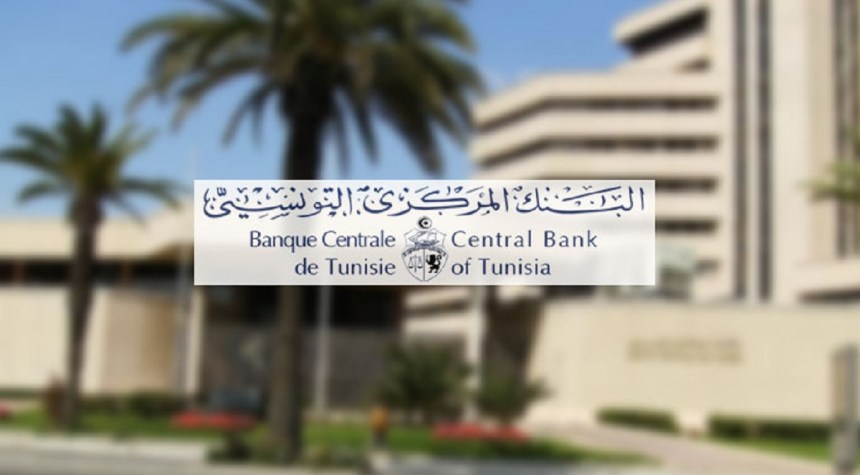Insights
The lawyers of Boussayene Knani & Associés frequently contribute to publications in several legal journals specializing in Business Law.
In addition, members of the firm regularly host training seminars on current topics in Business Law and Arbitration, intended in particular for lawyers, businesses and management executives.
Home / Insights



FEBRAURY 02, 2024
Law No. 2024-10 of February 7, 2024
- Law No. 2024-10 of February 7, 2024 (hereinafter referred to as Law 2024-10)
Law No. 2024-10, which authorizes the Central Bank of Tunisia to grant facilities to the benefit of the General Treasury of Tunisia, was published in the Official Gazette (JORT) No. 21 on February 7, 2024. This law is part of the framework to finance a portion of the state’s budget deficit for the year 2024.
Under Law 2024-10, the Central Bank of Tunisia is exceptionally authorized to grant facilities to the General Treasury of Tunisia, amounting to a net sum of seven thousand (7,000) million dinars. This amount is to be repaid over a period of 10 years, including a grace period of 3 years, and will be interest-free.
These facilities will be drawn in tranches based on the needs of the General Treasury of Tunisia. It is important to note that this provision constitutes a derogation from the provisions of Article 25 of Law No. 2016-35 of April 25, 2016, relating to the status of the Central Bank of Tunisia.
A convention between the Minister of Finance and the Governor of the Central Bank of Tunisia will determine the specific terms for drawing and repaying these facilities.
- Parliamentary Debate on Article 96 of the Penal Code
On Thursday, February 22, 2024, the Legislative Commission discussed two proposals for revising Article 96 of the Penal Code, which currently stipulates a prison sentence of up to 10 years for any public official found guilty of violating administrative regulations with the intent to gain an advantage for themselves or others.
The first proposal calls for distinguishing between actions taken by public officials to gain personal benefits and those based on judgment, requiring proof of malicious intent for the penalty to apply.
The second proposal emphasizes the need for proportionality between the crime committed and the penalty imposed.
Article: The Pathological Clause in Arbitration
Arbitration has become the standard method for resolving disputes, particularly in international commercial contracts. Various factors encourage parties to opt for private arbitration over state courts, such as the ability to pre-select the most appropriate tribunal for their dispute. The parties’ consent to arbitration is crucial, usually formalized through an arbitration agreement, which can take the form of either an arbitration clause or an arbitration agreement.
An arbitration agreement typically poses no significant issues, as it is an agreement by parties already involved in a dispute to submit their conflict to an arbitral tribunal. In this case, both parties are fully aware of the implications of choosing arbitration and the specifics of the dispute. Choosing arbitration despite the existing conflict indicates that the parties see clear benefits in this course of action.
In contrast, an arbitration clause, which parties agree to before a dispute arises and which only comes into effect once a conflict emerges, is often contested by one party after the dispute arises. The reasons for challenging such a clause vary, often stemming from a defense strategy exploiting anomalies in the clause’s drafting. However, challenges can also arise from legitimate differences in interpretation due to poor drafting. In all these cases, the hesitation usually stems from the presence of a pathological arbitration clause—a regrettably common issue in practice.
The inclusion of a pathological arbitration clause in an international contract creates significant problems for the parties involved. The arbitration agreement, which should provide predictability and legal certainty, instead becomes the source of conflict and legal insecurity. The clause must then be interpreted to clarify its scope, content, and sometimes even the parties involved. This situation exposes the parties to the risks inherent in interpretation, which they sought to avoid by establishing a pre-agreed arbitration clause.
Moreover, a pathological arbitration clause presents additional challenges, such as determining who will interpret the clause and how it will be interpreted.
Who Will Interpret the Pathological Clause?
It is generally accepted that the arbitrator has the authority to rule on their own jurisdiction, based on the principle of “competence-competence.” However, this is not always the case, for several reasons:
Firstly, the application of the competence-competence principle requires its acceptance within the legal system where the judge’s jurisdiction to initially rule on the pathological clause will be superseded by the arbitrator’s authority.
Secondly, even if the arbitrator rules on the clause, the competence-competence principle does not preclude subsequent recourse to state courts. This principle merely grants the arbitrator priority over the judge in ruling on their own jurisdiction. The judge may still rule on the issue later.
Finally, there are situations where the judge—at least the Tunisian judge—may not be able to refer the parties to arbitration if the arbitration agreement is found to be null, inoperative, or unenforceable. In these cases, the judge must decide the fate of the pathological clause. However, identifying the competent judge in international matters is highly unpredictable. This depends on each state’s direct jurisdiction rules, which may also involve considering indirect jurisdiction rules. This complexity often leads to forum shopping, something the parties sought to avoid through the arbitration clause.
Parties frequently resort to a jurisdiction clause to avoid such unpredictability. However, the presence of a jurisdiction clause (even if limited to interpreting an arbitration clause) alongside an arbitration clause can itself create a pathological clause due to the combination of poorly drafted provisions that refer simultaneously to a state court and an arbitral tribunal.
The confusion faced by litigants with a pathological clause extends beyond identifying the competent judge—whether private or state—to the clause’s interpretation.
How to Interpret the Pathological Clause?
The interpretation of a pathological clause depends on who undertakes it. Regardless of whether a judge or an arbitrator interprets the clause, the interpretation can either be restrictive or extensive. In both scenarios, one of the parties, whose legitimate expectations have been thwarted, is likely to suffer harm.
Restrictive interpretation stems from the position that access to a state court is a right that cannot be denied unless explicitly waived by the parties. In this case, whenever there is doubt about the parties’ intent to arbitrate, it is preferable to favor the jurisdiction of the state court. As a result, a party expecting arbitration may find itself compelled to litigate in a state court, with all the unpredictability that entails.
Conversely, extensive interpretation seeks to salvage the pathological clause, sometimes excessively so. In such cases, one party may be surprised to find that a matter it believed excluded from arbitration is instead submitted to it.
To avoid these difficulties and ensure legal certainty in commercial transactions, particularly international ones, it is crucial for parties to carefully draft their arbitration agreements.
